 Tastespotting compiles the best in food blogging from all over the world, making it the ultimate in food porn and a very amusing way to waste a bunch of time. Whether you’re looking for ideas about what to cook or just want to admire others’ creativity and talent, this is the place.
Tastespotting compiles the best in food blogging from all over the world, making it the ultimate in food porn and a very amusing way to waste a bunch of time. Whether you’re looking for ideas about what to cook or just want to admire others’ creativity and talent, this is the place.
In the “OMG That’s Brilliant” category today, we have a pretzel diamond ring, by Roni Baram of the industrial design department at H.I.T, Israel on the left. Top right we have sugar people, waiting to be knocked into to their watery (or coffee-y, rather) graves from Natasha at Nova Clutch.
And the “Food Worth Drooling Over” category is being represented by the Beef Wellington on the lower right, courtesy of Mike’s Table. My nitpick here is it should be made with brioche, not puff pastry, but who am I kidding? It looks fantastic and I’m jealous. The best story of my childhood is how I requested my parents make me Beef Wellington for my birthday…when I was 4.
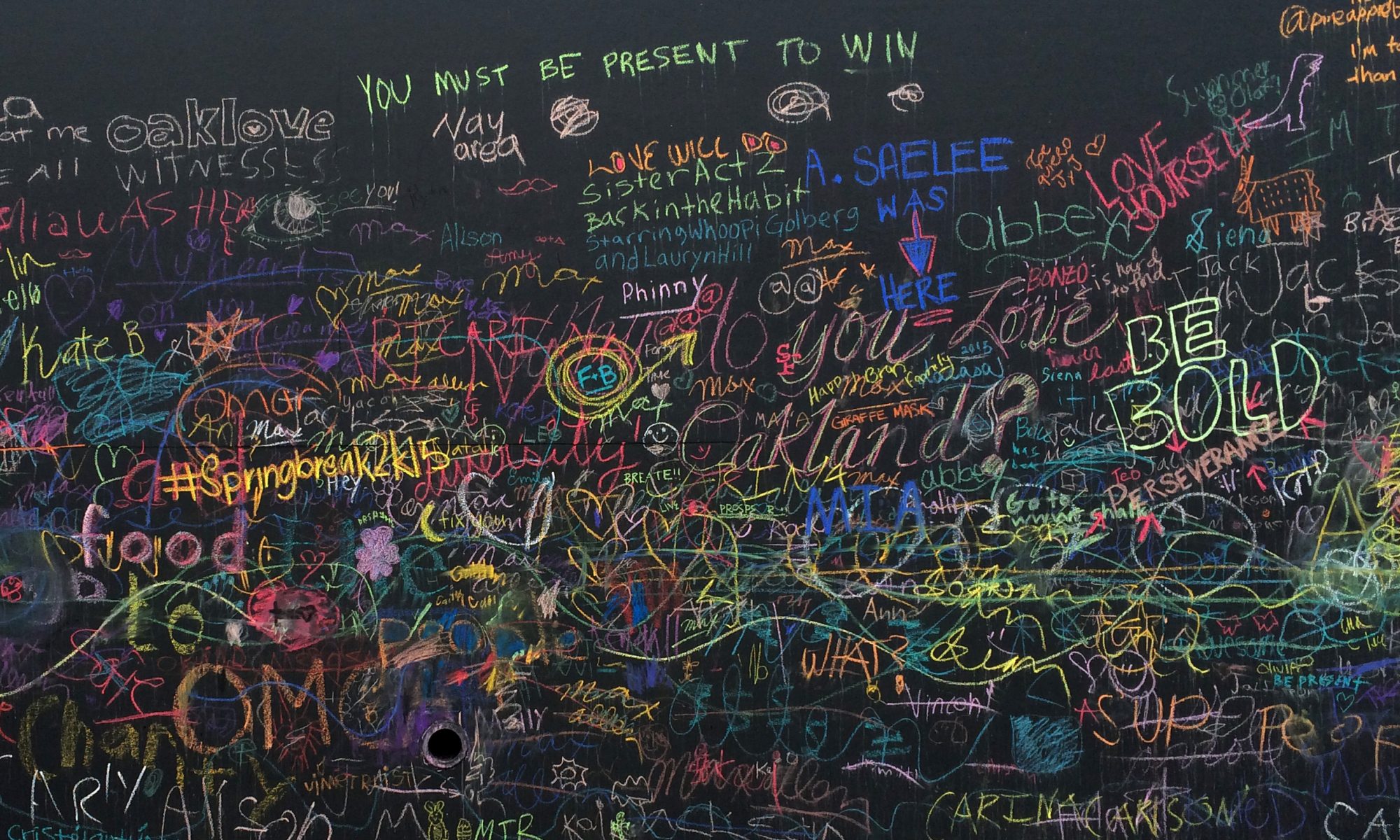
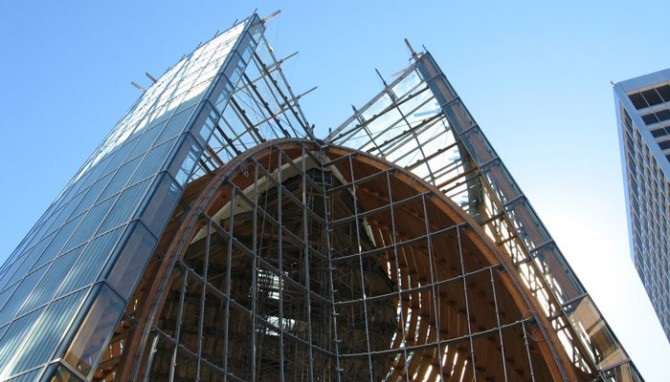 The Cathedral of Christ the Light is being constructed in Oakland overlooking Lake Merritt. I can’t wait to see the final result, especially to find out how much of the exposed structure will remain visible from the exterior.
The Cathedral of Christ the Light is being constructed in Oakland overlooking Lake Merritt. I can’t wait to see the final result, especially to find out how much of the exposed structure will remain visible from the exterior.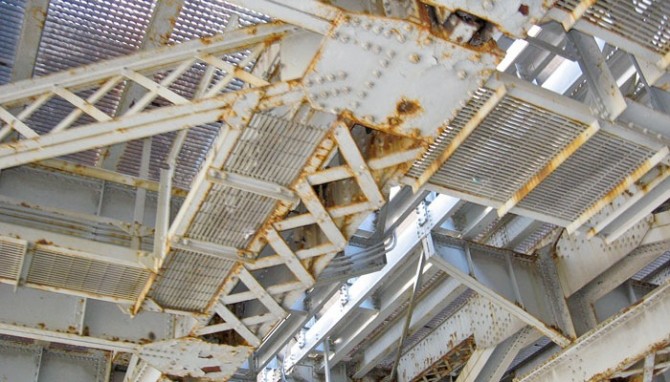
 I’m going to miss summer vegetables! I don’t even like peppers, but this display was so gorgeous I was tempted to become a convert. One of the best things about living in California is the availability of amazing produce almost all year round. Cooking (and eating) is a joy here. I’d always considered myself a foodie, but I had no idea what I was missing until I experienced direct-from-the-source produce and artisan breads and cheeses.
I’m going to miss summer vegetables! I don’t even like peppers, but this display was so gorgeous I was tempted to become a convert. One of the best things about living in California is the availability of amazing produce almost all year round. Cooking (and eating) is a joy here. I’d always considered myself a foodie, but I had no idea what I was missing until I experienced direct-from-the-source produce and artisan breads and cheeses.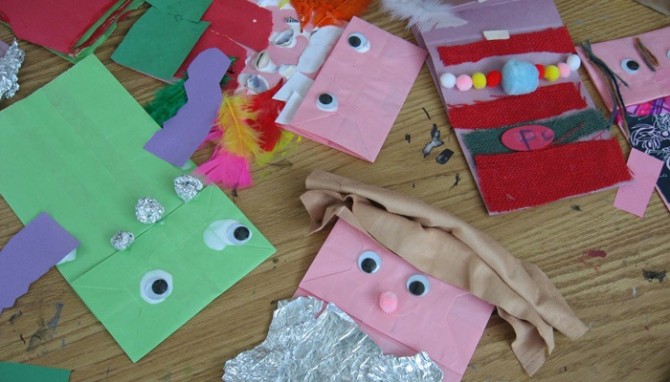 A good friend works for
A good friend works for 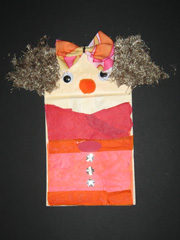
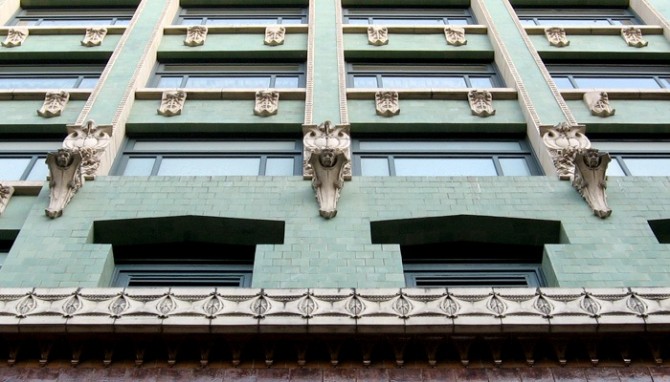
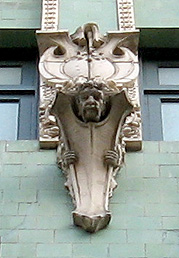
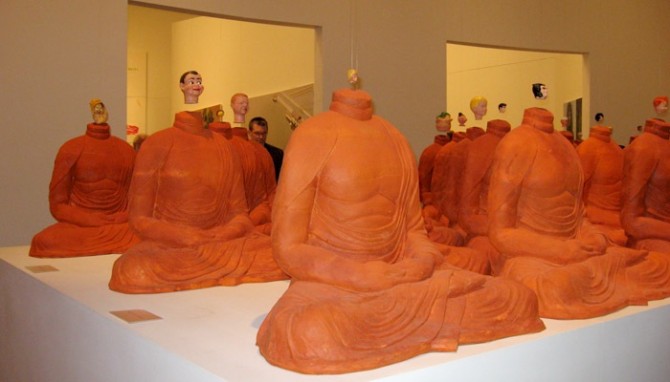 Also at the Denver Art Museum, I ran across this installation of meditating Buddhas topped with various doll heads. Heads include Ken, Howdy Doody, Wolverine, and Doc, of Seven Dwarves fame. For some reason, I thought the creepy rubbery foam bodies were even more strange than the suspended doll heads. (Headless, Michael Joo)
Also at the Denver Art Museum, I ran across this installation of meditating Buddhas topped with various doll heads. Heads include Ken, Howdy Doody, Wolverine, and Doc, of Seven Dwarves fame. For some reason, I thought the creepy rubbery foam bodies were even more strange than the suspended doll heads. (Headless, Michael Joo)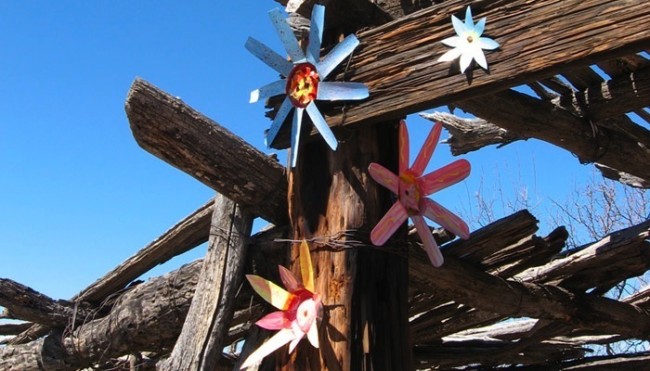 There is something magical about the Sonoran Desert. Despite the scrubby bushes and monotonous sand, there is a quality to the people, the land, and the architecture that I have always loved. (This nostalgia for my childhood is not to be confused with actually wanting to live there!)
There is something magical about the Sonoran Desert. Despite the scrubby bushes and monotonous sand, there is a quality to the people, the land, and the architecture that I have always loved. (This nostalgia for my childhood is not to be confused with actually wanting to live there!)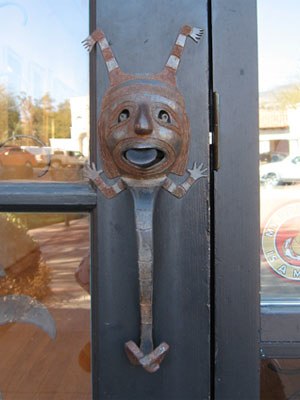
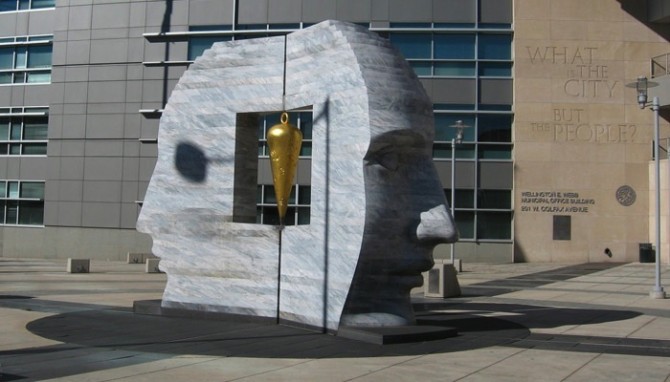 I wish I could take credit for it, but it was my brother who saw the eye created from the shadow of a nearby street lamp. The position is so perfect it looks intentional. I wonder if the artist has seen it like this.
I wish I could take credit for it, but it was my brother who saw the eye created from the shadow of a nearby street lamp. The position is so perfect it looks intentional. I wonder if the artist has seen it like this.